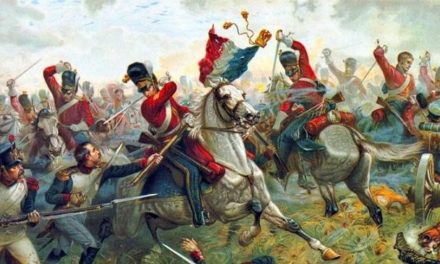After more than 20 years as a journalist, Mitch Albom had a chance encounter with a former professor. Their meeting led to his memoir Tuesdays With Morrie.
Next came two novels, The Five People You Meet in Heaven and For One More Day, each with movie adaptations Albom wrote himself. All the while, he maintained an active career as a sportswriter.
So how does one writer dominate so many genres and appeal to such different audiences? Albom claims it takes just one skill: storytelling. “I always tell people I learned to be a writer at the kitchen table,” he says. “We had a big family. You got to tell a story for about two seconds, and if you were boring, someone else just started talking right over you.”
This ability to interest others in his characters—fictional or real—is central to every word he writes.
After those, Albom returned to memoir and wrote, Have a Little Faith, which immediately became a New York Times Bestseller. The seed for the book was planted when Albert Lewis, Albom’s ageing rabbi, asked him to give his eulogy. Overwhelmed by the request, Albom embarked on what turned into eight years of regular meetings with Lewis to discuss faith—what it is, what it isn’t and how it affects lives.
During that time, Albom also began a friendship with Henry Covington, an ex-convict turned minister of a ramshackle church in Detroit. In the book, Albom struggles to reconcile one concept—faith—with these two very different men. The author described it as the most important thing he’s ever written.
“The subject matter is so timely given the turmoil in the world and the way human beings are being forced to deal with harsh realities, like the economic crisis,” Albom explains. “Faith has become an issue for most people in some way. Some because it’s what they turn to; some because it’s what they’re battling over; some because they want to ignore it altogether. It’s very rare to find someone who doesn’t have faith on their radar.”
“The biggest challenge was not to write it in a way that made a value judgment, but to just present their stories as their stories. Whenever you have two characters in a book, whether it’s a novel or non-fiction, you run the risk that the reader is going to like one more than the other. They’re going to read one chapter and say, “I can’t wait to get back to the other guy.” I had to make sure each person’s story was as compelling as the other.”
“The best way I can think of to describe it is like when you’re threading up your shoelace in your sneakers. You have to go through two holes. You go through one on the left side, one on the right side, one on the left side … then at the very end you pull it and they finally come together.”
Albom says that while death appears as a central theme in his writing, he didn’t plan it that way.
“It all began with Tuesdays With Morrie, and that book was as big an accident as anyone could have: watching television one night, going to visit a guy, asking him what he feared about his death, finding out about his debt and ultimately writing a book to help him pay his bills. Along the way, Morrie became the defining book of my writing life. I couldn’t have anticipated that in any way.”
“After Morrie, I didn’t write another book for six years. I travelled and spent time talking to people— being immersed in a different world. I was used to going to sporting events and talking to athletes. And then all of a sudden I was going to hospice groups and universities and meeting with people dying, people trying to figure out what was important.”
“I was drawn back to the keyboard to write about subjects inspired by those encounters.”
“I wrote The Five People You Meet in Heaven because after Morrie died I’d been talking to people about what happens when you die. After that book was published, I talked to a lot of people who said, “I hope my mother or father’s in heaven. Boy, if I could just see them again.” That morphed into For One More Day. Although Have a Little Faith also has a main character die, it’s kind of a departure for me because I don’t generally write about faith. For as spiritual as some people think my books are, I’ve never really dealt with religious things.”
“I believe the biggest themes of life are put into the best focus when held up against the very sharp light of mortality. But most of my visits with Albert Lewis weren’t about death. We could’ve had those same conversations about faith and marriage and family when he was 50 years old and perfectly healthy.”
Mitch Albom answers questions:
HOW DO YOU COVER SUCH A BROAD RANGE?
“I view them as all the same. I don’t look at it as sports writing. I don’t look at it as novel writing. I don’t look at it as non-fiction writing or inspirational writing. I’ve always said I have one skill. That skill—if I have it at all—is story telling.”
“I find interesting characters or lessons that resonate with people and sometimes I write about them in the sports pages, sometimes in a column, sometimes in a novel, sometimes a play or sometimes in non‑fiction. But at the core I always say to myself, ‘Is there a story here? Is this something people want to read?’ I never think that just because I’m saying something, it’s important. I’ve never felt that.”
“That’s probably why it takes me so long to write my books. I’m always worried about whether this matters to other people, not ‘Does it matter to me?’”
HOW DO YOU APPROACH EACH MEMOIR?
“Writers and publishers tend to make more of fiction and non-fiction, memoir versus novel, than the average reader does. Most people just want to read a book. If you have a good story, people want to turn the pages whether it’s a memoir or a novel.”
“I think memoirs are a strong format if you’ve had a unique experience. I don’t think most things that happen to me are all that interesting. I try not to make myself a huge character in these books. I try to make my character a stand-in for the reader: What would they do if they got to visit an old teacher? What would they do if they got to visit a clergyman in his home?”
WHAT HAS BEEN YOUR BIGGEST WRITING CHALLENGE?
“Writing a novel for the first time was the biggest challenge. Until The Five People You Meet in Heaven, I had always dealt with truth and the facts. As a result, I’d been both limited by it and able to relax in it.
“When you’re writing a non-fiction story about somebody who has two sisters and no brother, that’s the story. You never have to consider, What if he had two brothers? What if he had a handicapped brother? What if he had a brother who used to beat him up? All those possibilities start to haunt you when you write a novel. That really threw me.”
DO YOU HAVE TO ADAPT A LOT FOR DIFFERENT AUDIENCES?
“Anybody can pick up a newspaper. That was good training for the first 20 years of my writing life. I had to try to write in such a way that anybody—whether they knew a lot about sports or didn’t, whether they were young or old—could get it. You have to find the essential human story so that even if a reader has never heard of the people, they’ll still get an urge to read the story.”
WHAT ADVICE DO YOU GIVE WRITERS WHO WANT TO HAVE SUCCESS IN SEVERAL GENRES?
“Treat all readers of all genres and formats the same. If you don’t take each format seriously, people may just walk out on you after a couple of paragraphs. But if you find the essence of the story, the reader will ask that essential question: “What happens next?”
“If you can get them to do that, it won’t matter what you’re writing. How would readers feel if they suddenly saw a guy they’d always seen in a rabbi’s robes wearing Bermuda shorts and black socks with sandals? How awkward would they feel if they had to do a eulogy for him? I try to see things the way the reader might see them.”
DO YOU HAVE ANY OTHER ADVICE FOR MEMOIR WRITERS?
“There are a lot of ways to tell a memoir. When I first took Tuesdays With Morrie to publishers, a very prominent publisher stopped me while I was telling the story of my dying professor and said, “Stop. I don’t mean to be rude, but I don’t think you have any idea what a memoir is. I think you’re too young to even understand it. Maybe come back in about 20 years and you’ll have some idea.”
“I left the office in tears. Why can’t they just say no? Why do they have to insult you too? In time, the Morrie book proved that traditional definitions can be wrong, so don’t limit yourself to only one way of storytelling. Anyone who tries to write a memoir needs to keep this in mind: an author’s interests may not mirror the reader’s interests. Are you writing a book because it’s fascinating to you, or because you just want to tell your story? A memoir should have some uplifting quality, whether inspiring or illuminating, to aid it in influencing others.”
WHAT WILL YOU WORK ON NEXT?
“I have several more novels I’ve been planning. I have a non-fiction book idea I’ll probably write after another novel or two. It’s about when I was very young and worked as a piano player and singer on a tiny island, very far away from America. It was a funny, eye-opening experience that says a lot about what we thought we knew when we were young versus how little we know when we’re older. Nobody’s going to die in that one. But it will probably shake people up a little.”
Melissa Hill in Writers Digest. Reproduced for educational purposes.










